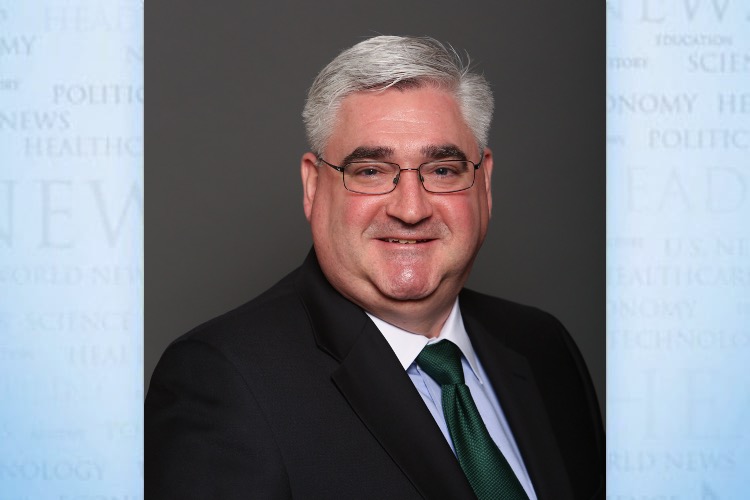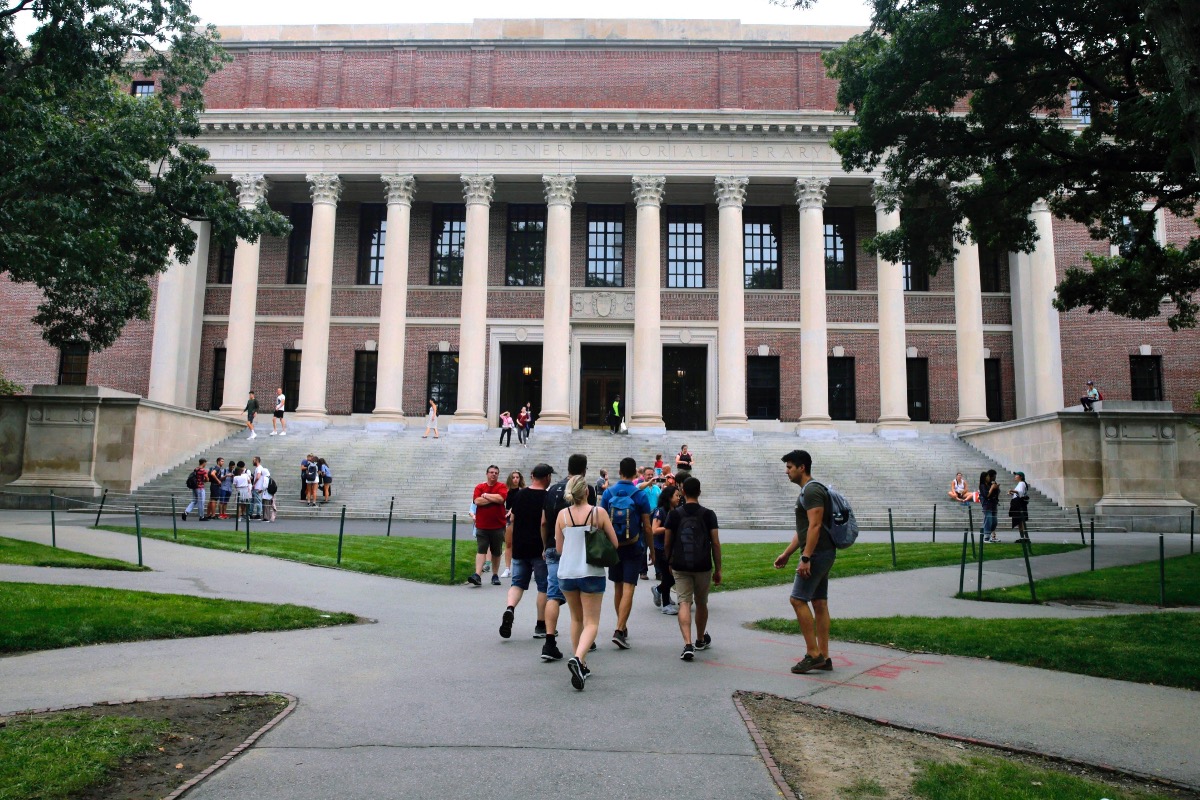
Scientism: Is Worship of Science Replacing Religion?
In a January 1931 debate with writer G.K. Chesterton, famed “monkey trial” lawyer Clarence Darrow essentially stated that science had refuted religion. In fact, his implication was that science could replace religion.
It may seem ironic that the debate’s topic was “Will the World Return to Religion?” and that now, 90 years later, we’re lamenting how people are leaving what they in 1931 supposedly had already left. That is to say, a recent Gallup poll showed that for the first time in American history, less than 50 percent of the population holds membership in a house of worship.
The National Pulse opened with this statistic in a Sunday essay entitled “New American Divinity — Part I: Scientism.” Writer Noelle Garnier discusses how faith in science appears to be supplanting faith in God and posits that the coronavirus situation — with scientists such as Anthony Fauci front and center appearing as secular saviors — may spur a further conversion to “scientism.”
After listing some of science’s achievements, Garnier writes that these “‘miracles’ aren’t spurring mass conversion to monotheistic faiths, but religious conversions — indeed, tectonic shifts — are happening, as Gallup’s data indicate.” She states that the COVID-19 pandemic “seems to have been” a “mass conversion event to the ‘new divinity.’”
As evidence, Garnier writes, referencing a Pew Research Center survey via a link, that the “COVID-19 outbreak raised the authority of medical scientists — who appear to hold the confidence of most Americans… — to quasi-religious dimensions.”
While I myself have written of how the China virus response has taken on religious flavor and fervor, with the dogma-driven COVID Ritual (e.g., masking, social distancing), Garnier’s analysis is likely flawed. First, Pew points out that the authority of medical scientists has risen mainly among Democrats. Perhaps more significantly, the survey was conducted last May, at the height of the outbreak and SARS-CoV-2 fears, when people wanted to believe in the government “experts.”
Now, however, with Fauci et al. having behind them more than a year of changing predictions and prescriptions like clothes, it’s entirely possible that their approval numbers have changed. In fact, were I seeking converts to scientism, I’d be worried that the schizoid, unscientific China virus response would discredit science.
A better way to frame what’s occurring is that people are losing faith in all our institutions, inclusive of religion and perhaps science. Some call this a Third Turning period of history.
Nonetheless, the notion that science can replace religion is not uncommon today, nor is the tendency to turn science into a “religion”: scientism. Given this, the matter warrants examination, and we can start by defining the terms.
“‘Science is an open-ended exploration of reality based on logical thinking about empirical observations,’” related Psychology Today, quoting psychologist Imants Baruss. “Scientism is the adherence to a materialist version of reality that confines investigation to those sorts of things that are permitted by materialism.”
Scientism-oriented sentiments are everywhere. For example, Garnier quotes basketball coach Stan Van Gundy as tweeting, “It is far more important that our government leaders believe in science than that they believe in god [sic].”
Then there’s astrophysicist Neil deGrasse Tyson, best known for playing a scientist on TV, who said, “The good thing about Science is that it’s true, whether or not you believe in it.”
This is an odd statement. If someone said, “The good thing about Religion is that it’s true, whether or not you believe in it,” you might point out that there’s good and bad religion. Was the religion of the human-sacrificing Aztecs true?
Likewise, is there not good and bad science? Was Lysenkoism true? Tyson may respond that pseudo-science isn’t “Science.” But often the former is called the latter until it’s exposed as pseudo-science. As to this, note that “mainstream” science’s pronouncements have often proven to be wrong.
But the main problem with scientism involves a deeper matter. When Gundy prioritized belief in “science” over belief in God, perhaps implied is that the two are competing spheres. Yet it’s not just that they’re actually in a way complementary in that they both involve the search for Truth (via different means), but that science can’t be directed only toward the good without what “religion” provides. In fact, expecting good science without the direction of good religion/philosophy is like expecting a missile without a guidance system to hit its target.
Yet scientism adherents not only wish to eliminate that guidance system, but also claim that the missile’s thrusters and warhead can be what they cannot be: their own guidance system. As scientist Austin L. Hughes explained in 2012 in “The Folly of Scientism: Why scientists shouldn’t trespass on philosophy’s domain”:
Central to scientism is the grabbing of nearly the entire territory of what were once considered questions that properly belong to philosophy. Scientism takes science to be not only better than philosophy at answering such questions, but the only means of answering them.
…Advocates of scientism today claim the sole mantle of rationality, frequently equating science with reason itself. Yet it seems the very antithesis of reason to insist that science can do what it cannot, or even that it has done what it demonstrably has not. As a scientist, I would never deny that scientific discoveries can have important implications for metaphysics, epistemology, and ethics, and that everyone interested in these topics needs to be scientifically literate. But the claim that science and science alone can answer longstanding questions in these fields gives rise to countless problems.
In reality, Hughes understates the case. Scientism adherents may claim they confine “investigation to those sorts of things that are permitted by materialism,” but most are lying — usually to themselves. As soon as they issue statements about right and wrong, they’ve transgressed again their standard. For “science” can’t tell us what we should do, only what we can.
Why don’t we, and shouldn’t we, clone humans or experiment on twins à la Nazi death camp doctor Josef Mengele? It’s not science telling us those things are wrong because science can’t tell us anything is right or wrong.
Under a truly materialist worldview, morality does not compute. You can’t see a principle in a Petri dish or a moral under a microscope. Scientifically speaking, murder is not wrong — only possible.
Oh, people can argue the point, and then we’ll go on that metaphysical merry-go-round. “Murder is wrong because it harms others,” they’ll say. But prove, scientifically, that it’s wrong to harm others. “But murder also hurts society,” they may then state. Okay, prove, scientifically, that it’s wrong to hurt society. Why, the misanthropic zero-population-growth types may say that man is pox upon the planet and, therefore, it would be good to eliminate him. (Of course, they can’t prove their assertion scientifically, either.)
Although popular culture references may always seem a bit frivolous, coming to mind here is perhaps the most realistic scene in the film Terminator 2: Judgment Day. When the young John Connor tells the terminator robot assigned to protect him, “You just can’t go around killing people!” the machine’s response is “Why?” “What do you mean ‘Why?’?” the boy then exclaims, “‘Cause you can’t!”
The terminator again asks why, and all the kid can finally say is, “Trust me on this.” But the robot’s response was entirely rational for an entity programmed to only recognize and consider the material world. Call him that rarest of things: an intellectually honest atheist.
He was also perfectly scientific. And this is why “science,” per se, can’t govern itself. For that which is capable only of pushing back technological limits cannot determine moral limits; something limited to the physical can’t tackle the metaphysical. You can only answer the terminator’s question, logically, by accepting certain basic axioms:
- God exists.
- He has deemed that there is moral law, Truth, that provides universal and unchanging answers to moral questions.
In reality, scientism adherents would reduce us to robots. As the aforementioned Psychology Today article puts it, the belief’s materialism “holds that human beings are just biological machines….”
This is entirely logical if you accept the materialist premise. It’s also an idea that, leading to amorality, would ensure that more of the “biological machines” would themselves become terminators — and the terminated.




